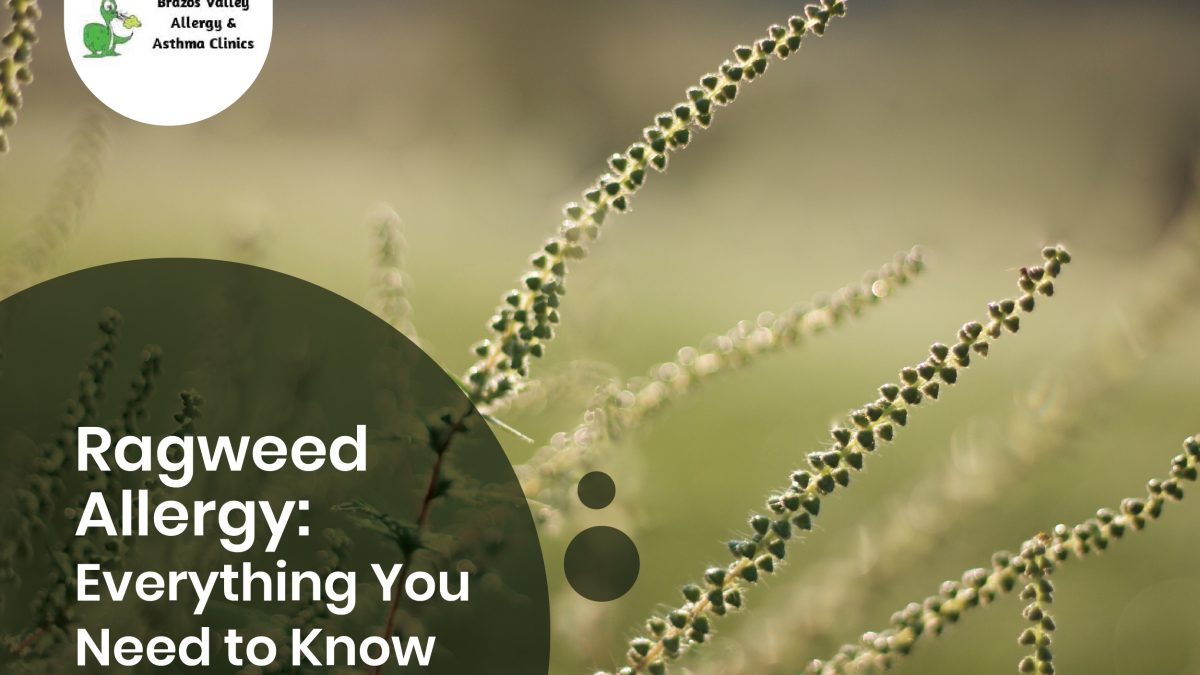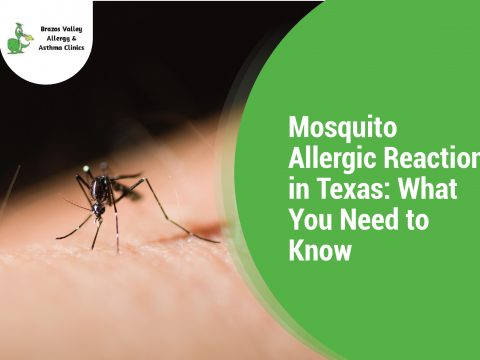- 979-485-9287
- office@bvallergy.com
-
 979-251-7804
979-251-7804
Ragweed Allergy: Everything You Need to Know

Seasonal Allergies in Texas: Types and Treatment
June 15, 2021
5 Things You May Not Know About Ragweed Pollen Allergy
July 30, 2021Ragweed is most prevalent in the late summer and ends in mid-October. You can see it often along river banks, spacious fields with grasses, and across roadsides. Ragweed allergy symptoms are rarely dangerous. However, it can affect the quality of life. Here’s everything you need to know about Ragweed Allergy:
What is Ragweed Allergy?
Ragweed pollen is the most common cause of pollen-associated allergy symptoms. In particular, a single plant of this type can release almost a billion grains of pollen. The range of the pollen area it distributes may vary and could be pretty tricky to measure. Even in mild winters, ragweed pollen can travel hundreds of miles. The reaction of breathing in ragweed pollen depends on the variety. It also matters if a person already suffers from ragweed allergy or not. The primary role of the immune system is to fight off pathogens that are currently roaming inside the body. Even though its pollen is harmless, people with ragweed allergies can have a severe reaction to it.
Ragweed Allergy Symptoms
As the season changes, ragweed plants release tiny pollen grains to fertilize other plants. Places with long warmer climates like Texas make it more viable for ragweed pollen to spread freely. If you’re allergic to ragweed, you may already know the following symptoms:
- Wheezing or coughing
- Nasal congestion
- Itchiness on the throat
- Bulgy and bluish skin under the eyes
- Eye irritation
- Unable to sleep because of sinus
- Pain around the nose and cheek areas
Why am I allergic to Ragweed?
Some people can develop allergies from ragweed plants. The immune system is responsible for blocking the attacks of harmful substances. Although its role is focused on one thing — fighting off viruses or harmful bacteria — it can still make mistakes. When you inhale ragweed pollen, you may experience some allergic reactions. It can be sneezing, itchy or watery eyes, and a runny nose. This is the immune system acknowledging ragweed pollen as something harmful to your body.
Often, allergies are hereditary. However, it doesn’t always mean that when all your family members have allergies, you can have one too. An allergy still involves several factors other than genetics.
How to know if you have Ragweed Allergy?
Allergy sufferers may also develop an allergy to ragweed. Even if you don’t notice it, it’s important to take precautions. If you suspect ragweed is a problem, check with an allergist. The common test is the skin prick examination.
The allergist’s results from a skin prick test will determine the medication. They could also put their input base on your medical assessment.
Treatments for Ragweed Allergy
It may be impossible to avoid allergens, but some medicines can help control allergy symptoms. Below are the most common ways to reduce discomfort for common ragweed allergy:
Allergy Medications
- Common allergy medicine is a decongestant or an antihistamine.
- Antihistamine and decongestant medications such as Actifee and Claritin-D
- Oxymetazoline (Afrin nasal spray) can ease congestion due to allergies.
- Corticosteroids can help soothe your nose’s inflammation.
- Antihistamines like loratadine (Claritin), and diphenhydramine (Benadryl)
Allergy Shots
Immunotherapy is a treatment that helps retrieve the immune system’s defense. It’s a form of allergy shot with an allergen in it. Over time, the amount of allergen in the shot gradually increases. These allergy shots can help reduce severe allergic reactions, specifically when ragweed allergies symptoms occur. It strengthens your body’s immunity against allergens. Taking an allergy shot can provide beneficial results.
Change Into Healthy Lifestyle
Maintaining a healthy lifestyle reduces your risk of getting sick, including diseases or allergies. Keeping your home clean most of the time is another way to start.
Here are some ways you can improve your lifestyle to cope with ragweed allergy:
- Run the air conditioner for extended periods for the whole year.
- Closing windows from time to time. It blocks allergens from entering your home.
- Vacuum the house at least once a week with a HEPA filter.
- Wash clothing items right away after wearing them outside.
- Move to locations with lower pollen levels.
- Use your dryer to dry clothes. Avoid getting your clothes in contact outside, especially when it is ragweed pollen season.
Avoid Certain Foods
Some of these foods below can trigger a ragweed allergy reaction.
- Wheat or low-fiber foods
- Eggs
- Peanuts
- Salmon
- Shellfish
- Shrimp
- Dairy food products (milk, cheese)
Some seeds like sunflowers naturally cause an allergic reaction, but not 100%. It is still crucial to determine whether you are allergic to any foods mentioned or not.
Mark your calendar
Always put important reminders on your calendar throughout the year. The ragweed season is most vigorous from August to mid-October. Remember to get ahead and prepare safety measures like medications.
BVAllergy Can Help
Ragweed allergy indeed affects many people. If you take the necessary precautions, severe allergic reactions can be prevented. You can also schedule a consultation with our allergist at any time.
Paul Jantzi has spent more than 13 years serving the south-central Texas region as an allergist. He is board-certified in allergy and immunology with prior specialty training in pediatrics and internal medicine. Schedule a meeting with him to learn more about immunotherapy and how it can help with your allergy symptoms.




